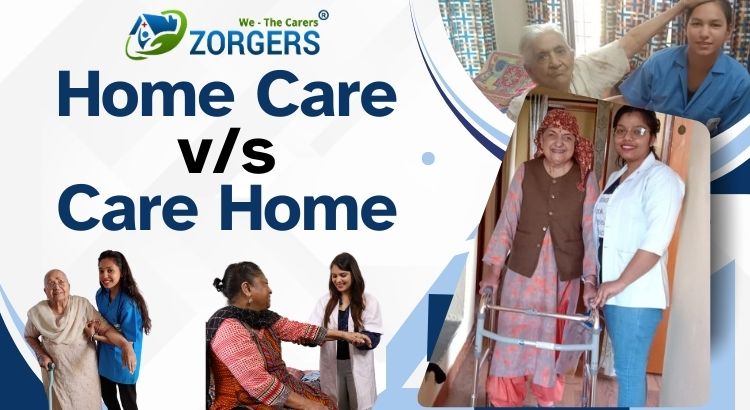When it comes to ensuring the well-being of our loved ones, particularly as they age or face health challenges, the decision between home care and care homes is one of the most significant choices we have to make. Both options offer unique advantages, and understanding these can help you make an informed decision that best suits your family’s needs.
What is Home Care?
Home care involves providing care and support to individuals in the comfort of their own homes. This can range from assistance with daily activities like bathing and dressing to more specialized medical care for chronic illnesses or post-surgical recovery. Home care services are typically tailored to the individual’s needs, allowing them to maintain a sense of independence while receiving the support they require.
What are Care Homes?
Care homes, also known as residential care facilities, provide round-the-clock care in a communal living setting. These facilities are staffed with trained professionals who offer a range of services, from personal care to medical supervision. Care homes are designed to provide a safe, supportive environment where residents can receive the care they need while also having access to social activities and companionship.
Advantages of Home Care
Comfort of Familiar Surroundings: One of the biggest advantages of home care is that it allows individuals to remain in their own homes, surrounded by familiar objects and memories. This can be particularly beneficial for those with dementia or Alzheimer’s, as the familiarity of home can reduce confusion and anxiety.
Personalized Care: Home care is highly customizable, with care plans tailored to the individual’s specific needs. Whether it’s a few hours of assistance each day or 24/7 care, the level of support can be adjusted as needed.
Maintaining Independence: Home care allows individuals to maintain a greater degree of independence. They can follow their own routines, make choices about their daily activities, and continue to live in the environment they know and love.
One-on-One Attention: With home care, your loved one receives one-on-one attention from caregivers. This personalized approach ensures that their needs are met promptly and that they build a trusting relationship with their caregiver.
Flexibility: Home care services can be scaled up or down based on changing needs, making it a flexible option for families. Whether your loved one needs short-term support after surgery or long-term care for a chronic condition, home care can adapt to these requirements.
Advantages of Care Homes
Comprehensive Care: Care homes provide a comprehensive range of services, including personal care, medical supervision, and social activities. This all-inclusive approach ensures that residents have access to the care they need at all times.
Social Interaction: Care homes offer opportunities for social interaction and companionship, which can be particularly beneficial for those who might otherwise feel isolated at home. Group activities, communal meals, and social events help foster a sense of community among residents.
Safety and Security: Care homes are designed with safety in mind, with staff available around the clock to assist residents. This can provide peace of mind, particularly for families worried about their loved one’s safety at home.
Access to Professional Staff: Care homes are staffed with trained professionals, including nurses and caregivers, who can provide medical care and support as needed. This level of expertise can be particularly important for individuals with complex health needs.
Relief for Family Caregivers: Choosing a care home can provide relief for family members who may be struggling to meet the demands of caregiving. Knowing that their loved one is in a safe, supportive environment can reduce stress and allow family members to focus on their own well-being.
Which Option is Right for You?
The decision between home care and a care home depends on a variety of factors, including the individual’s health needs, personal preferences, and family dynamics. Here are a few considerations to keep in mind:
Health and Care Needs: If your loved one requires intensive medical care or constant supervision, a care home might be the better option. However, if they prefer to stay in their own home and only need moderate assistance, home care could be ideal.
Level of Independence: Consider how important maintaining independence is for your loved one. Home care allows for greater independence, while care homes offer a more structured environment.
Social Needs: If social interaction and activities are important to your loved one, a care home can provide a vibrant community atmosphere. Conversely, if they prefer a quieter, more private environment, home care may be more suitable.
Family Involvement: Home care allows family members to remain closely involved in the day-to-day care of their loved one. In contrast, care homes take on the primary caregiving role, which can be a relief for families but also means less direct involvement.
Conclusion
Both home care and care homes offer valuable benefits, and the right choice will depend on your loved one’s unique needs and preferences. Home care provides the comfort of familiar surroundings and personalized attention, while care homes offer comprehensive support and social engagement. By carefully considering your loved one’s needs and circumstances, you can make an informed decision that ensures they receive the best possible care.
Whether you choose home care or a care home, the most important thing is that your loved one feels safe, supported, and valued.





